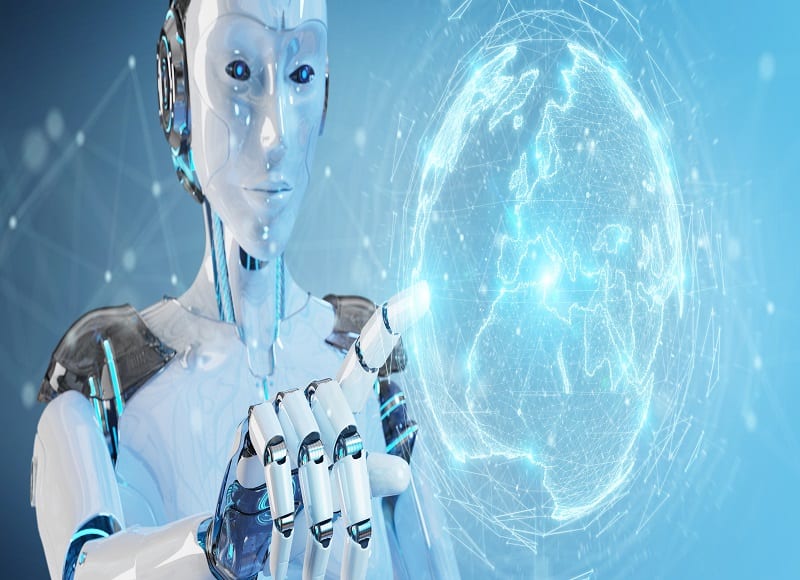Prof. Fabio Cuzzolin, Head of Artificial Intelligence and Vision at Oxford Brookes University, Oxford, United Kingdom participates in Risk Roundup to discuss Advances in Artificial Intelligence – Human and Non-Human Gesture and Action Recognition.
Advances in Artificial Intelligence – Human and Non-Human Gesture and Action Recognition
How would we define and describe a man-machine or a machine-machine interface and why is it relevant to understanding Artificial Intelligence? Mediator between humans (and non-human users) and machines, a man-machine or machine-machine interface, is basically a system that takes care of the entire human-non-human communication process.
It is responsible for the delivery of the machine or computer knowledge, functionality, and available information, in a way that is compatible with the end user’s communication channels, be it human or non-human. It then translates the user’s (human or non-human) actions (user input) into a form (instructions/commands) that are understandable by a machine.
When increasingly complex Artificial Intelligence-based systems, products, and services are rapidly emerging across nations, the necessity for a more user-friendly man-machine or machine-machine interface is becoming increasingly necessary for their effective utilization, and consequently for the success that they were designed for.
Artificial Intelligence has come a long way. Over the years, graphical user interfaces, audio-based interaction, speech synthesis, and understanding, natural languages, direct manipulation, multimodal interaction dialogues, ergonomics as well as human factors evaluation have all contributed to the evolution of more powerful, more complex, and more demanding man-machine and machine-machine user interfaces.
Having said that, as traditional computers give way to tablets, smartphones, the internet of things, the internet of nano things, and more, the need for symmetric communication between, we the humans and non-humans and different forms of computers (non-humans: AI-based Robots and more) is becoming absolutely essential.
Advances in Artificial Intelligence have reached a point where different forms of computers or machines are not just receivers of human instructions but collaborators. When Artificial Intelligence-based computers, machines, or robots are now able to harness a full range of natural modes that include language, gesture, facial and other expressions and actions that are hands-free and non-visual are becoming more important than ever.
Time is now to talk about Advances in Artificial Intelligence – Human and Non-Human Gesture and Action Recognition and related risks!
For more please watch the Risk Roundup Webcast or hear the Risk Roundup Podcast
About the Guest
Fabio Cuzzolin was born in Jesolo, Italy. He received the laurea degree magna cum laude from the University of Padova, Italy, in 1997 and the Ph.D. degree from the same institution in 2001, with a thesis entitled “Visions of generalized probability theory”.
During his doctoral term, he worked at the Autonomous Navigation and Computer Vision Laboratory at the University of Padova.
He has been a researcher in the Image and Sound Processing Group of the Politecnico di Milano in Milan, Italy, and postdoc with the UCLA Vision Lab at the University of California at Los Angeles, California. He was Marie Curie fellow with the Perception project at INRIA Rhone-Alpes, Grenoble.
He is with the Department of Computing of Oxford Brookes University since September 2008. He is a Reader there since September 2011 and has taken on the role of Head of the Artificial Intelligence and Vision research group in September 2012.
His research includes computer vision applications like gesture and action recognition, object pose estimation, and identity recognition from gait. His main field of investigation remains, however, that of generalized and imprecise probabilities. In particular, he has formulated a geometric approach to uncertainty measures, focusing mainly on the probabilistic approximation problem, and studied the notion of independence of sources from an algebraic point of view.
He is the author of some 80 peer-reviewed publications, published or under review, including 2 monographs, 3 book chapters, 16 journal papers (+ 6u/r), 9 chapters in collections. He is a member of IEEE since 2001, and a member of the Society for Imprecise Probabilities and Their Applications, a member of the Board of Directors of the Belief Functions and Applications Society (BFAS), and was part of the Technical Programme Committee of some 50 international conferences.
He is an Associate Editor of the IEEE Transactions on Fuzzy Systems and of the IEEE Transactions on Human-Machine Systems.
About Risk Group
Risk Group is a leading strategic security risk research and reporting organization.
Copyright Risk Group LLC. All Rights Reserved
Reference Episodes
Machine Learning Based Market Forecasting
Machine Learning on Insurance Data to Predict Hospitalization
Future of Work – Battle between Human Work Force and Machine Work Force
Machine Learning Bias – An Existential Risk
Understanding Cognitive Computing
Cloud Powered Artificial Intelligence Platform
Blockchain & Machine Learning Based Content Platform
Powering Collective Human Intelligence
Collective Intelligence
Collective Machine Intelligence
Artificial Intelligence based Healthcare System
Machine Learning for Medical Diagnosis
Science of Intelligence – Human Intelligence to Computational Intelligence
How will Deep Learning Disrupt Financial Sector?
Social Media Based Predictive Analytics
Credit Scoring using Machine Learning
Cancer Detection to Credit Lending – Intelligent Machine Applications of Artificial Intelligence
Financial Industry Moves Towards Artificial Intelligence Based Machines
Man-Machine Interaction – Communicating with Computers
Machine Intelligence Impact on Human Society
The Rise of Artificial Intelligence
Artificial Intelligence driven Cyber-Security
Advances in Artificial Intelligence – Human and Non-Human Gesture and Action Recognition
Agricultural Robots
Computational Intelligence & Security Risks
Business Logic Monitoring and Automation
Societal Impact of Robotics
Enterprise Digital Intelligence Risks – Need for Smarter Search Tools





 Intelligent Machine Applications of Artificial Intelligence
Intelligent Machine Applications of Artificial Intelligence